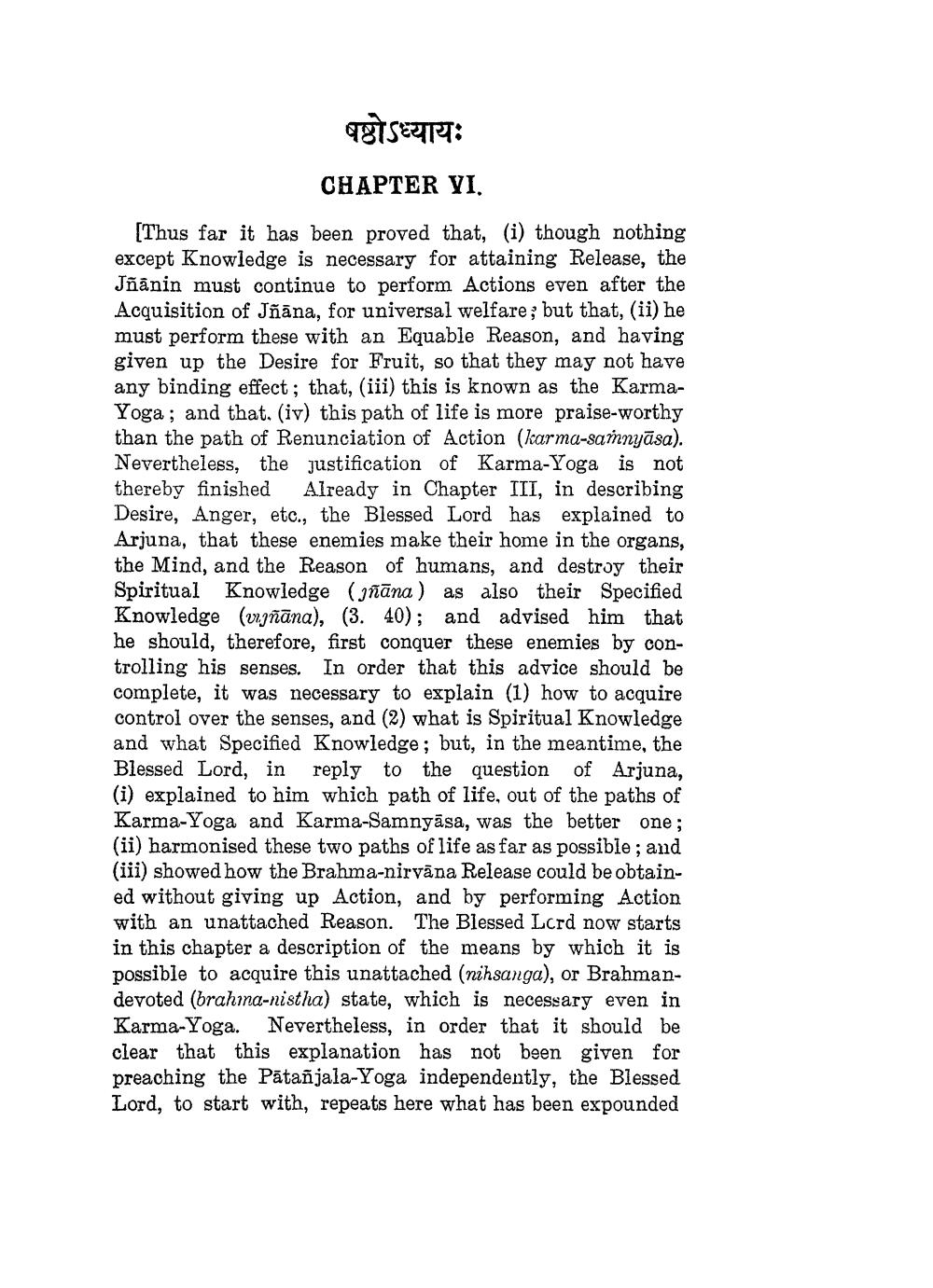________________
षष्ठोऽध्यायः CHAPTER VI.
[Thus far it has been proved that, (i) though nothing except Knowledge is necessary for attaining Release, the Jñānin must continue to perform Actions even after the Acquisition of Jñāna, for universal welfare; but that, (ii) he must perform these with an Equable Reason, and having given up the Desire for Fruit, so that they may not have any binding effect; that, (iii) this is known as the KarmaYoga; and that. (iv) this path of life is more praise-worthy than the path of Renunciation of Action (karma-sainyāsa). Nevertheless, the justification of Karma-Yoga is not thereby finished Already in Chapter III, in describing Desire, Anger, etc., the Blessed Lord has explained to Arjuna, that these enemies make their home in the organs, the Mind, and the Reason of humans, and destroy their Spiritual Knowledge (añāna) as also their Specified Knowledge (vjñāna), (3. 40); and advised him that he should, therefore, first conquer these enemies by controlling his senses. In order that this advice should be complete, it was necessary to explain (1) how to acquire control over the senses, and (2) what is Spiritual Knowledge and what Specified Knowledge; but, in the meantime, the Blessed Lord, in reply to the question of Arjuna, (i) explained to him which path of life, out of the paths of Karma-Yoga and Karma-Samnyāsa, was the better one; (ii) harmonised these two paths of life as far as possible; and (iii) showed how the Brahma-nirvāna Release could be obtained without giving up Action, and by performing Action with an unattached Reason. The Blessed Lord now starts in this chapter a description of the means by which it is possible to acquire this unattached (nihsanga), or Brahmandevoted (brahma-nistha) state, which is necessary even in Karma-Yoga. Nevertheless, in order that it should be clear that this explanation has not been given for preaching the Pātañjala-Yoga independently, the Blessed Lord, to start with, repeats here what has been expounded




